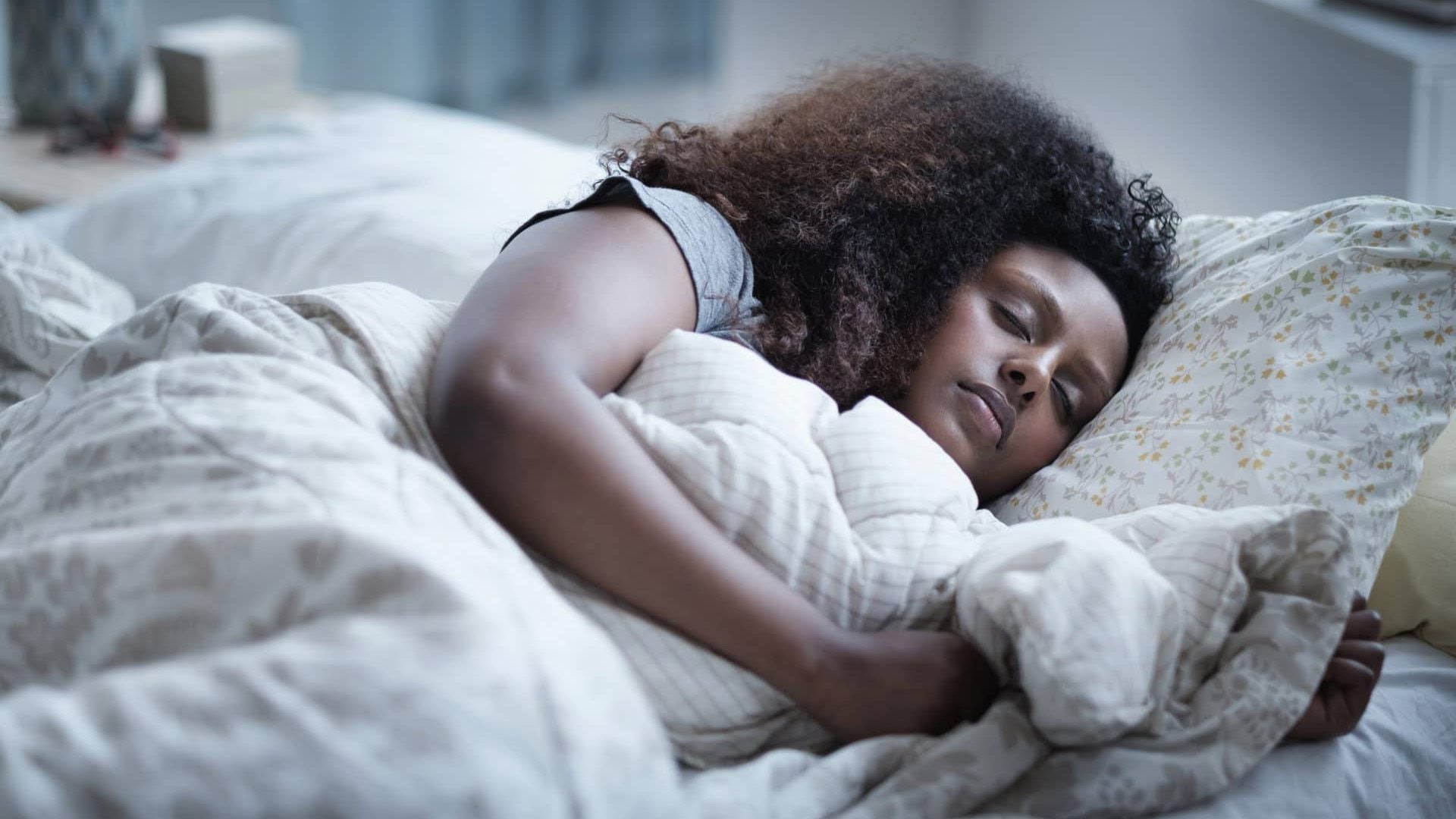Category
health, WebAbout This Project
You’ve heard the recommendations, but the truth is, getting a full night of sleep can seem like an impossible task at times. Yet it’s imperative—especially for Black women.
“Sleep is the foundation of health,” notes Tiffany Lester, M.D., medical director at Parsley Health in San Francisco. “You can eat kale salads all day, work out twice a day and have a fulfilling, engaged life, but if you don’t give your body the opportunity to fully rest and detox, then it hardly makes any difference.”
The Centers for Disease Control and Prevention (CDC) reports that one third of Americans are clocking fewer than the seven to nine hours of snooze time advised for adults. Poor quality of sleep plagues Black women even more than our counterparts and undermines our overall health.
“Blacks and Latinos tend to be poor sleepers, getting fewer than six hours on average per night—which is not enough, because poor sleepers are at greater risk for cardiovascular disease,” explains Girardin Jean-Louis, Ph.D., professor of population health and psychiatry at NYU Langone Health in New York City.
Lack of shut-eye is also linked to diabetes, obesity, depression and a host of other chronic illnesses. While some people are still riding the “they sleep, we grind” wave or simply not prioritizing rest, certain disorders can also cause sleep deprivation. According to the CDC, there are four key ones: narcolepsy, which is defined as nodding off too much during the daytime and experiencing sudden muscular weakness; restless leg syndrome, which usually feels like unpleasant “creeping” sensations in your legs accompanied by other pain; sleep apnea, which is characterized by interrupted breathing during rest that often causes gasping or snoring; and insomnia, which is the inability to fall or stay asleep (it leads to anxiety and other negative effects during the day).
“It turns out that insomnia is more common among Black women than among others,” notes Lynn Rosenberg, Sc.D., senior epidemiologist at Boston University’s Slone Epidemiology Center. Rosenberg is also the principal investigator for the Black Women’s Health Study, the largest national study on the health of Black women. Her team is working on a clinical trial that aims to help us improve our overall health by getting quality sack time. In the meantime, check out our cheat sheet for better slumber.
Meditate, Meditate, Meditate
“Any type of meditation that’s done correctly under the guidance of a teacher or master can, in fact, help you have a good night’s sleep,” says Jean-Louis. Find your local meditation center and learn techniques to assist in calming your mind. Need a bit more direction? Download the Headspace app for daily lessons on meditation and mindfulness.
Explore Therapy
Cognitive Behavioral Therapy for Insomnia (CBT-I) uses a structured program that focuses on thoughts and behaviors that might be affecting rest. “Years ago if you wanted to engage in this type of therapy, you would have to see a therapist or a psychologist,” says Jean-Louis. “Now we actually have CBT-I online, so you can, in the privacy of your home, engage in this practice yourself.” If you’re looking for a CBT-I professional in your area, the Society of Behavioral Sleep Medicine has a directory on its site (behavioralsleep.org). Want to try an online program? Check out Sleepio (which provides plans through health insurance) or CBT-i Coach (which is free).
Change Your Routine
Do you drink coffee late in the day? Are you on your computer or watching Netflix before turning in? Opt for a different routine such as journaling before bed to relax and setting a firm lights-out time. “I typically recommend people look at the bedtime ritual,” says Lester. “We thrive when our bodies become used to a ritual. It sends a message to our brain to wake up or to sleep.”
VISIT ESSENCE.COM


